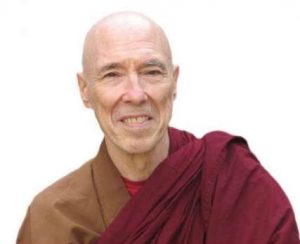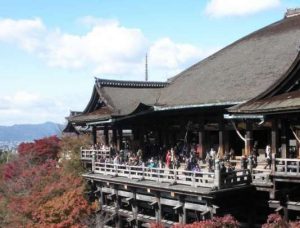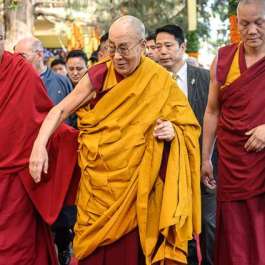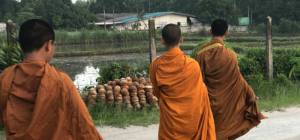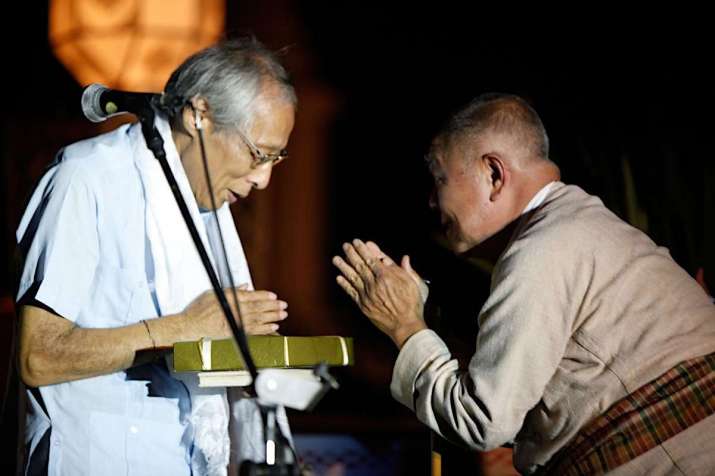
Prof. Sulak Sivaraksa. From jneb.net
An international live-streamed conference on socially engaged Buddhism will be held on 17 December, titled “Japanese Engaged Buddhism: From Caring for the Individual to Transforming Society.” Drawing on Japan’s long history of active participation by Buddhist priests and lay practitioners in a wide variety of social issues, the one-day event will examine various dimensions and manifestations of contemporary engaged Buddhism in Japan, with talks from leading Japanese practitioners and with guest appearances from prominent engaged Buddhists from elsewhere in Asia.
“In the last 15 years with the onset of a variety of social problems, especially caused by worsening economic conditions, Japanese Buddhists have developed a wide variety of new socially engaged Buddhist activities, such as rescue and care services for natural disaster victims, support for those suffering from social discrimination and poverty, psycho-spiritual care for the depressed and suicidal, and engagement in nuclear and environmental issues,” the conference organizers stated. “These activities are increasingly connecting with like-minded work by socially engaged Buddhists in Asia and other parts of the world. This one-day conference will be the first attempt to bring together and present this variety of new socially engaged Buddhist activities in Japan.”
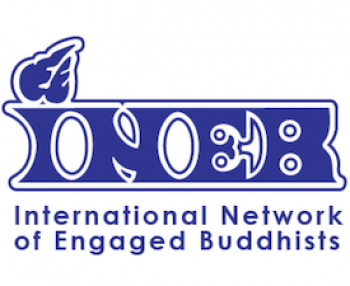
Running from 10 a.m.–5:30 p.m. Japan Standard Time via Zoom, the conference will be hosted by the Research Center for World Buddhist Cultures Ryukoku University, and co-hosted by the International Network of Engaged Buddhists (INEB), the Japan Network of Engaged Buddhists (JNEB), the International Buddhist Exchange Center (IBEC), and Ryukoku University Center for South Asian Studies (RINDAS), with support from the Department of Religious Studies of Ryukoku University.
“This event was originally planned as an extensive five-day international conference, as part of the annual INEB board meeting, and was to include study tours and a large public symposium in Kyoto. Unfortunately, because of COVID-19, it was all canceled,” said Jonathan S. Watts, Research Fellow at the International Buddhist Exchange Center at Kodosan (Yokohama), coordinator for JNEB, and a member of the INEB Executive Board.
The hosting Research Center for World Buddhist Cultures studies solution to urgent issues facing the modern world, conducting interdisciplinary academic research on Buddhism and related spiritual traditions in each country, and providing platforms for international intellectual exchange.
In consideration of the pandemic, conference speakers and participants have been confined to those already present in Japan’s Kansai region. National and international Zoom links will be available for other participants in Japan and around world, with simultaneous translation of the proceedings into English.
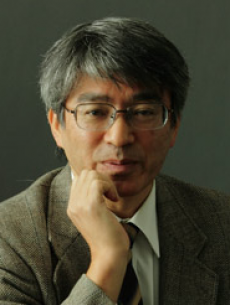
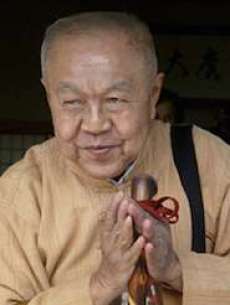
“In the long term view, we’ve been meaning to hold some sort of national engaged Buddhist conference in Japan, which has never been done before,” Watts told Buddhistdoor Global. “The growth of socially engaged Buddhist activities in Japan has been marked over the last 15 years and JNEB is stitching together quite a wide but still very informal network of such engaged Buddhists.”
The conference will opened by the joint keynote speakers INEB board member Prof. Mitsuya Dake of the Research Center for World Buddhist Cultures of Ryukoku University, and Prof. Sulak Sivaraksa, founder of the International Network of Engaged Buddhists.
The morning session will examine topics under the theme “Buddhist Activities to Confront Individual Suffering,” including suicide prevention; elderly and end-of-life care; counseling victims of natural disasters; and Buddhism and human resource development; and will be followed by a panel discussion on confronting individual suffering.
The conference’s afternoon session, under the theme “Buddhist Activities to Confront Social and Structural Suffering,” will focus on gender, LGBTQ, and discrimination; poverty and urban alienation; reviving communities through Buddhism-based alternative lifestyles; and clean energy and new financing mechanisms for regional development. The session will conclude with a panel discussion titled, “Buddhist Vision for the Future of Japan.”
Closing words will be heard from INEB Honorary Advisor Prof. Hisashi Nakamura, professor emeritus at Ryukoku University, and from INEB’s chairman, Harsha Navaratne.
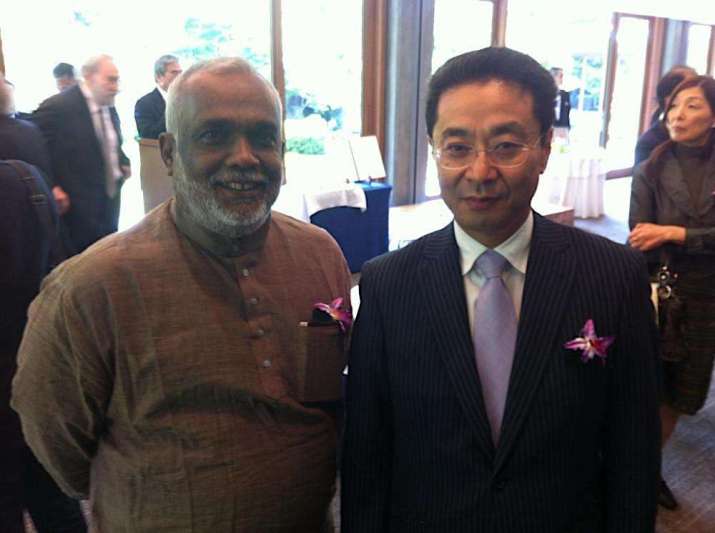
“This Zoom conference is not only a way to make up for the canceled INEB board meeting, but also to initiate a process within Japan to build greater solidarity among Japanese engaged Buddhists and to develop a better comprehensive movement,” Watts explained. “It is our hope that when this pandemic passes, we will be able to have a larger and more representative conference than the simple Zoom meeting we have scheduled here for 17 December.”
Headquartered in Bangkok, INEB was formed in 1989 by the prominent Thai academic, activist, and social critic Sulak Sivaraksa and a group of Buddhist and non-Buddhist thinkers and social activists. The aim of the organization is to connect engaged Buddhists around the world, to promote understanding, cooperation, and networking among inter-Buddhist and inter-religious groups, and to actively address urgent global issues such as human rights, conflict resolution, and environmental concerns.See more
Japanese Engaged Buddhism: From Caring for the Individual to Transforming Society (JNEB)
International Network of Engaged Buddhists
Japan Network of Engaged Buddhists
The Research Centre for World Buddhist Cultures
International Buddhist Exchange Center
Ryukoku University Center for South Asian Studies



